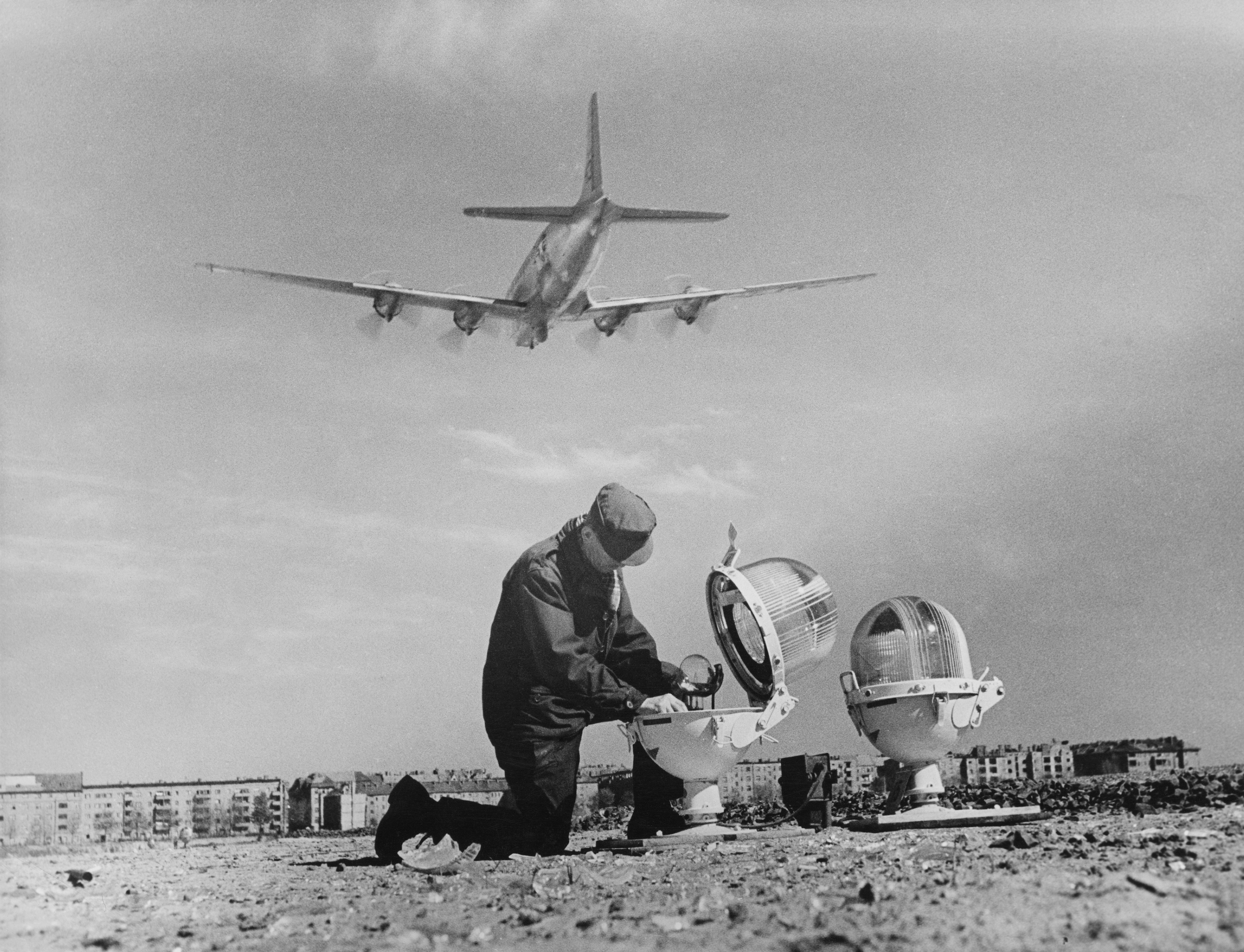Remember the Berlin Airlift to get through tough winter, Scholz tells Germans
‘The Berlin Airlift proves that the seemingly impossible can succeed if we courageously set big goals’

Olaf Scholz has urged Germans to invoke the spirit of the Berlin Airlift to get through the tough winter ahead.
Germany faces the prospect of blackouts, rations and price rises as Berlin tries to meet a shortfall in energy provision in its effort to move away from reliance on Russia.
Speaking to business leaders at Tempelhof Airport, which was the focal point of the Airlift between 1948 and 1949, the chancellor said modern-day Germans had to look to history for inspiration.
“The Berlin Airlift was a technical and logistical tour de force,” he added in a speech at the German Employers’ Day. “But no one could be sure in advance that the operation would end well ... and yet everyone went ahead with it.”
“The Berlin Airlift proves that the seemingly impossible can succeed if we courageously set big goals and work together. This makes me confident in the face of the great tasks that lie ahead of us,” he said. “Let us tackle the task together!”
During the airlift, Allied forces flew in hundreds of thousands of tonnes of supplies into divided Berlin after the Soviets blocked rail and road access to the city’s Western-occupied sectors as the Cold War began in earnest in the aftermath of the Second World War.
It is estimated that US and British forces flew over Berlin more than 250,000 times between June 1948 and September 1949, dropping fuel and food to residents.
The blockade was eventually lifted by the USSR.
Germany has warned its residents about a tough winter ahead, especially after Moscow announced earlier this month that it was closing the Nord Stream 1 pipeline indefinitely for “repairs”. That move was seen as revenge for Germany and Western Europe supporting Ukraine following Moscow’s invasion of its neighbour in February.
The underwater 1,200-kilometre (745-mile) gas link runs from under the Baltic Sea near St Petersburg to northeastern Germany and can send up to 170 million cubic metres of gas each day.
Germany has been long criticised for its over-reliance on Russian energy. Mr Scholz said Berlin wants to create a huge boom in the hydrogen industry as part of efforts to diversify its energy sources away from Russian gas.
Germany has filled its gas stores to some 88 per cent of capacity to get through the winter as Russia cuts gas exports and is looking to more sustainable long-term solutions.
Describing hydrogen as the gas of the future, Mr Scholz promised that Germany would “trigger a big boom”.
He added that Germany would have the infrastructure necessary to import all the gas it needed by the end of 2023 and pointed to the construction of liquefied natural gas terminals off the country’s coast.





Join our commenting forum
Join thought-provoking conversations, follow other Independent readers and see their replies
Comments